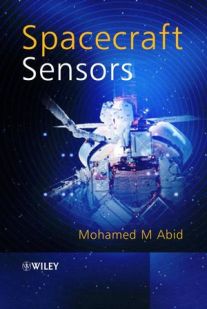Spacecraft Sensors

Spacecraft Sensors, the first of its kind, offers a comprehensive review of many aspects and intricacies of sensors used in the spacecraft industry. It covers sensor development from concept, design, and cost, to building, testing, interfacing, integrating, and on-orbit operation. It is intended for the specialist or non-specialist engineer, scientist, and those involved in the business aspect of the spacecraft industry.
Focusing on how these various disciplines contribute to the development of a sensor used in space, this key text:
- Explains how mathematics, physics, business, and engineering-based concepts are used to develop and design a sensor which complies with a set of specific requirements.
- Discusses essential topics such as cost estimation, signal processing, noise reduction, filters, phased arrays, radars, optics, and radiometers used in space operation.
- Covers a range of typical sensors used in the spacecraft industry such as infrared, passive microwave, radars and spacebased GPS sensors.
- Concludes each chapter with examples of past and current orbiting sensors such as DSP, SBIRS, CHAMP, LANDSAT, and GOES to illustrate how concepts are applied.
- Includes the Matlab codes used to create the example plots in order to give the reader a starting point for further analysis
Spacecraft Sensors is an invaluable resource for engineers, technical consultants, those in the business division, and research scientists associated with spacecraft projects. It is also an excellent textbook for undergraduate and postgraduate students studying the development, design and applications of spacebased sensors.
Click here for further information
Terms
While we only use edited and approved content for Azthena
answers, it may on occasions provide incorrect responses.
Please confirm any data provided with the related suppliers or
authors. We do not provide medical advice, if you search for
medical information you must always consult a medical
professional before acting on any information provided.
Your questions, but not your email details will be shared with
OpenAI and retained for 30 days in accordance with their
privacy principles.
Please do not ask questions that use sensitive or confidential
information.
Read the full Terms & Conditions.